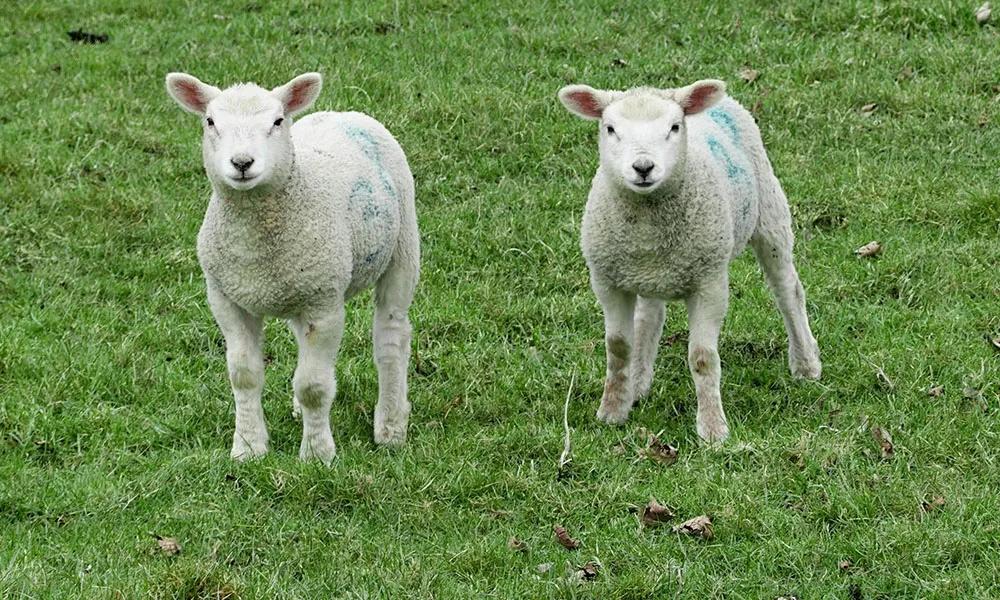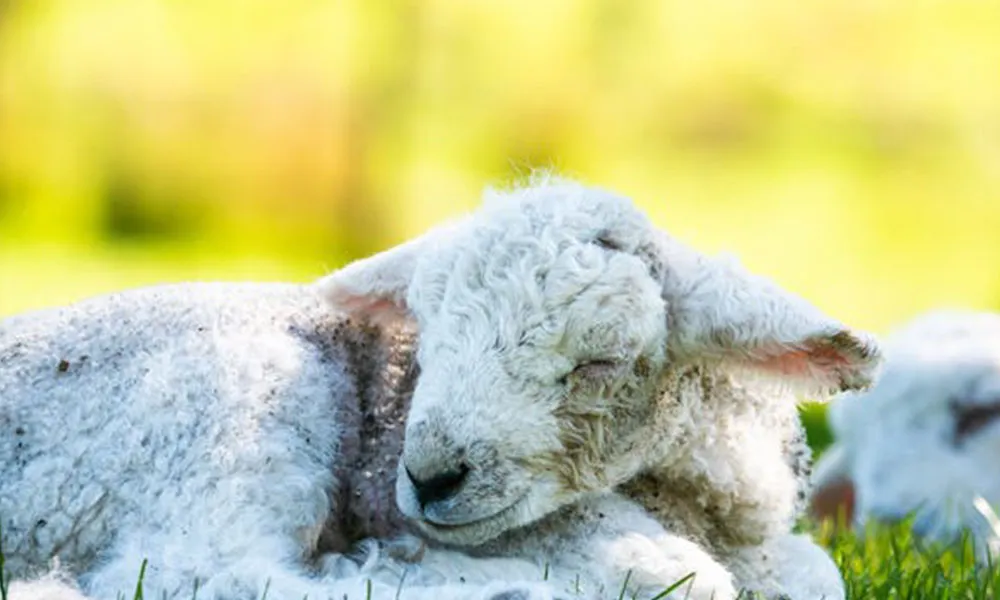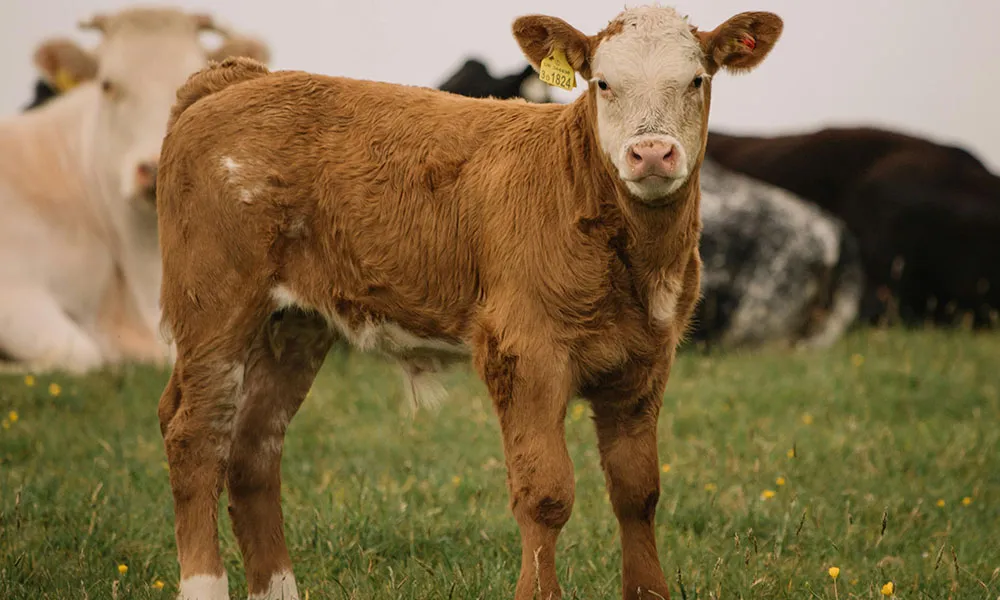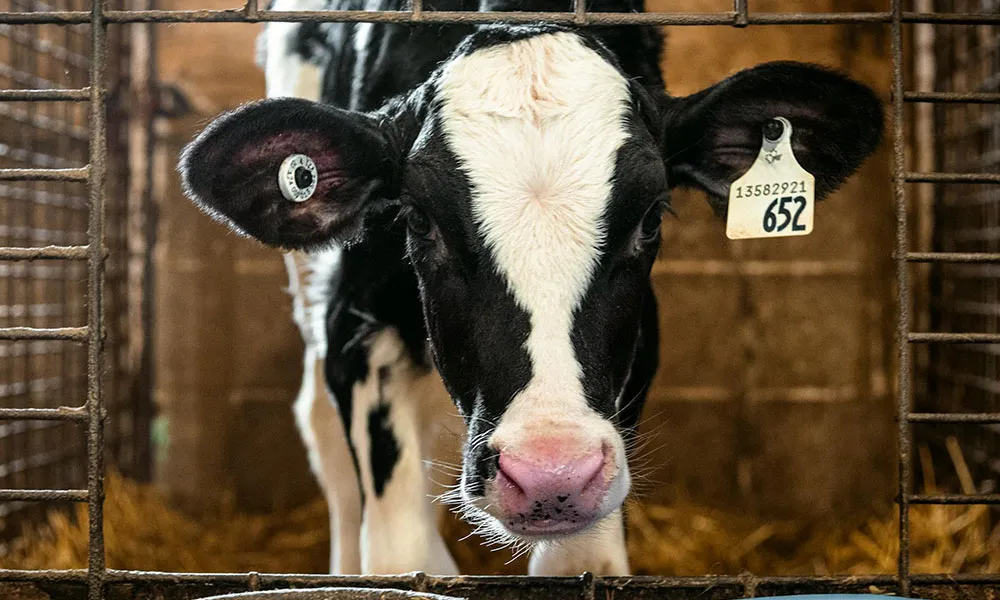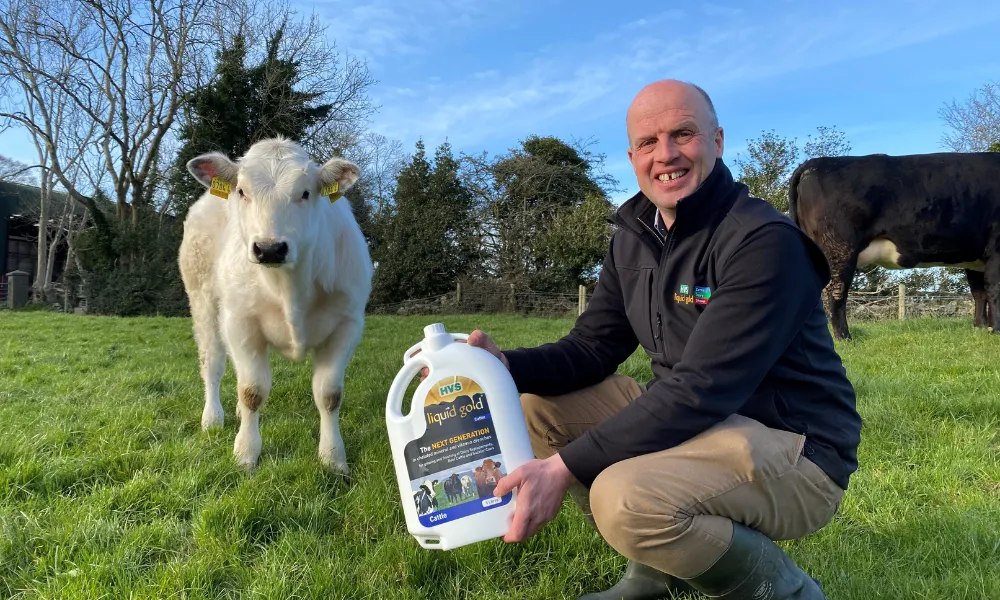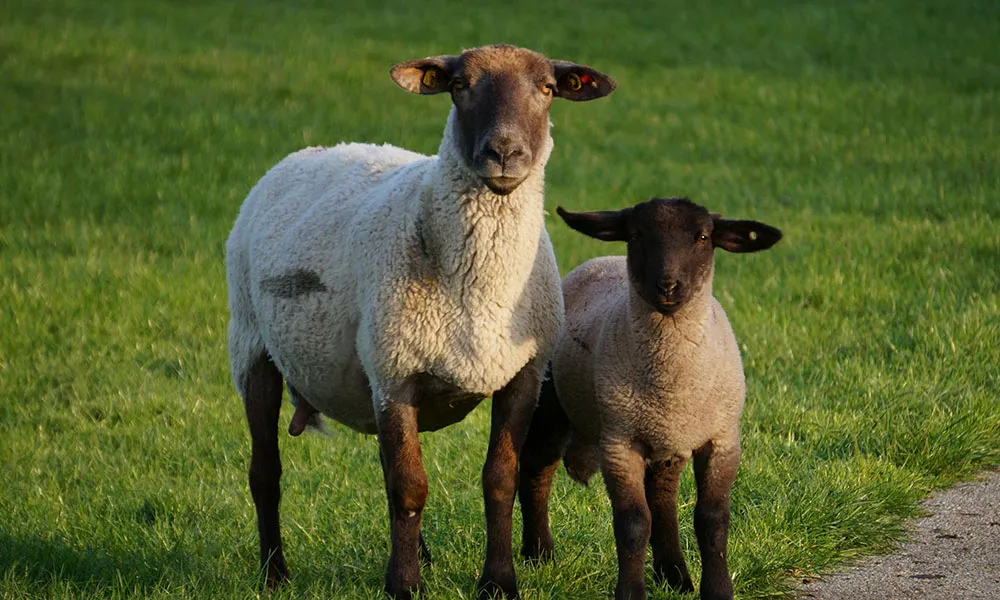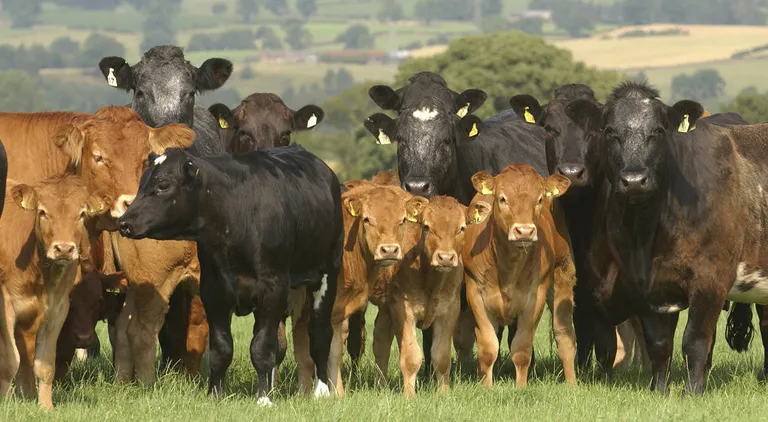
Cow Fertility
The cows are calved and out to grass in all parts of the country. Now you are probably thinking about your animals’ fertility and getting them back in calf. So begins the regular checking of your animals. Hoping to ensure you catch them at the optimal time for the A.I! Trying to figure out which is the best option tail paint or heat seeker pads; Doing up the pros and cons of each from price, ease of use, and accuracy. It’s a lot of hassle and stress. Maybe you’ve decided it’s better to just let a bull out, hope for the best and see what scans in calf in the autumn. Whichever way you go you’re only wasting time and money if you haven’t first put in place a fertility plan.
Studies have shown that much of the grass in Ireland is lacking in many of the minerals required for optimal cow fertility. Trace elements in particular are not readily available to meet the requirements of the animals. With the hormones that control fertility and nutrition being closely linked, it is worthwhile thinking about. As we know body condition is the main factor limiting the reproductive performance of suckler and dairy cows. The most critical time for cow nutrition is from six weeks before calving through to six weeks after service. The best way to judge whether cows are being fed appropriately is by scoring their body condition.
Correct body condition will minimise calving difficulties and minimise the period after the birth when cows are not cycling. Spring calving cows should calve at BCS 2.5-3 and then gain body condition towards mating. Autumn calving cows should calve at BCS 3-3.5 and maintain this score through mating and six weeks beyond. This will ensure egg viability and maximise embryo survival. Therefore it is vital you ensure an optimal diet in early lactation by providing high quality feeds to promote ovulation. However having animals in good physical condition isn’t a guarantee of fertility. Grass may be providing enough energy content, but fail to provide essential minerals for fertility.
Essential micro-nutrients for fertility
Phosphorus, calcium, copper, cobalt, iodine, selenium, zinc, vitamin E and manganese are all involved in a successful reproduction cycle and are essential for optimising cow fertility.
If you are having persistent issues with fertility in your herd blood testing cows in consultation with the vet may be useful to identify any deficiencies. For example the phosphorus supplementation program you use should be influenced by the phosphorus content of the forage being fed and the requirements of the cow. Phosphorus is usually not such a problem for cattle out on grass and fed forage hay or silage. However, since mineral availability varies by region, soil and grass testing can give a better understanding of what minerals your animals may need.
Trace Elements
Trace elements that influence reproduction in cattle are copper, cobalt, iodine, selenium, zinc, and manganese. Deficiencies of these can occur more regularly in the grazing ruminant and affect reproductive performance. (They can also affect growth rates and thrive in calves and beef animals.)
Other elements such as iron and molybdenum can be considerations but seldom from a deficiency viewpoint. In both cases excesses is more likely the issue, due to their negative impact on copper utilization.
Copper
Copper (Cu) is vital to numerous body physiological functions such as haemoglobin formation, iron absorption and mobilization, and connective tissue metabolism via copper's involvement in enzyme function. In a number of research studies, it has also been clearly documented that a copper deficiency can have an effect on fertility. This has been evidenced by a reduction in first-service conception rates, altered embryonic survival and a reduction in overall pregnancy rates. The effect on fertility can range from a very limited effect to a very pronounced decrease in overall pregnancy rates.
In addition, research has shown that there will be an alteration in reproductive behaviour. In situations where a severe copper deficiency develops, ovulation does not occur. Subsequently there is a retardation of future oestrous cycles. In addition, there is evidence that copper can cause an alteration in semen quality in males.
Manganese
Not to be confused with Magnesium (another important mineral for general health), Manganese is one of the hidden trace elements that may have considerably more influence than we realise. As with copper, manganese probably exerts its greatest influence on the animal via its effect on enzyme systems. Research evidence shows that manganese deficiencies can have an impact on suppression of conception rates, delayed oestrus in both postpartum females and young prepubescent heifers.
In addition, there is evidence that manganese deficiency will cause abortions in animals and deformed calves at birth. There is also links to calves, at birth, that "knuckle over" at the fetlock. Other symptoms reported include poor calf growth, loss of hair colour in both calves and cows, and an increase in the incidence of cystic ovaries. The mode of action by which manganese causes this deficiency is not clear other than it appears to be exerting these influences via enzyme systems in which it may be essential.
There is strong evidence, for example, that the manganese content of ovaries in normal cows was considerably higher than in those with high incidences of cystic ovaries. It is interesting to note that grass uptake of manganese is more readily available in acidic soils but decreases as soils become alkaline. It can be very low if pH gets above 7.0 on mineral type soils.
Selenium
Selenium, an important trace element but can be both deficient and toxic. Any discussion of selenium also needs to include vitamin E. Although vitamin E will not be discussed to any extent here, there is excellent evidence that the role of vitamin E in beef cow diets needs to be re-evaluated. It is very likely that in the future we will be using higher levels of vitamin E supplementation in a beef cow diet.
One manner in which a selenium deficiency can affect fertility is an increase in the incidence of early embryonic death. In addition, another common clinical symptom is an increase in the incidence of retained placentas. Evidence from dairy herds with selenium deficiency showed increased incidence of retained placenta from a level of 8 to 10 percent to 50 percent.
As in manganese a selenium deficiency is associated with an increased incidence of cystic ovaries. There is also an increased incidence of weak or silent heat periods. Finally, evidence exists linking selenium deficiency to weak calves at calving time.
Zinc
Zinc, as with all trace elements, is actively involved in enzyme function. The role of zinc in reproductive function appears to be more pronounced on the male side than on the female side. Evidence exists in research studies that zinc deficiency in the bull causes impaired fertility, possibly associated with an alteration in spermatozoa formation. This impairment of male fertility appears to be associated with the role of zinc as an activator of enzymes involved in the steroid genesis process, which is required for the secretion of testosterone and related hormones.
Iodine
Iodine and the thyroid hormones are important in the functions of lactation, muscle function, immune defence, normal blood and lymph circulation and the seasonality of reproduction. It is also vital for the development of a foetus. Iodine is essential to the development of the calf’s brain and nervous system. It also regulates the calf’s metabolism (the rate at which the body uses energy).
Iodine plays an important role in regulating the thyroid gland and any deficiency of the mineral will lead to reproductive failures.
Mineral Supplements
When choosing a supplement you should first note what mineral percentage is in the feed your animals are getting. Some such as manganese are only required in such small amounts that your ration could contain the required amounts. For this reason it is important to know the contents of any feed you’re giving.
It is also important to test your soil and grass for any deficiencies. When it comes to minerals for your cows there is a huge range of options. Some continue to use mineral powders mixed with the ration before turn out. Others, knowing of a specific deficiency on their farm, choose to inject with copper or multivitamin injection at turn out and leave it at that. However, drenches and boluses are becoming increasingly more popular.
Drenches
When it comes to drenches for breeding there is a wide array of options. The two biggest we at Agridirect currently have is Growvite Forte and Breeding cow. Both offer a good mix of all the vital minerals for fertility in cows, just at slightly different rates.
Many farmers are giving cows a drench at turn out or when the cattle are in for dosing. They can also be given four to six weeks out from calving to ensure that the cow is in optimal condition. The use of a drench is useful for areas where you are unsure of any deficiencies in the mineral content of grass, and just want to be sure the animal is in peak condition for mating. It can also be useful when letting animals out to fresh spring grass. This grass often grows too quickly to have adequate nutrients available and as a result extra minerals are required for a short period.
Boluses
In areas where you are aware of a general deficiency in grass quality a bolus might be the best option. Treating with boluses will give the animal their mineral requirements for up to six months. It also gives you peace of mind with no need to worry about deficiencies in your grass. However again with a wide array of options, you will need to decide which one best suits your herd’s requirements.
The two most popular options at the moment are Allsure Boluses for cattle and the Alltrace Hi-Iodine boluses. Both have most vitamins and minerals required for cow fertility and thrive. The Allsure boluses have become the most popular recently. However if you have manganese deficiency the Hi-Iodine boluses may be the better option as the Allsure have no manganese.
However as Manganese is rarely a problem on Irish farms this doesn’t pose much of a problem. Hopefully you now understand the importance of having a good knowledge of the nutrient requirements for your herd. It is vitally important to have mineral levels right, not only for fertility but for the general herd health. Herds with no mineral deficiencies will suffer less disease and have the ability to fight off diseases without the need for antibiotics; a big consideration with the calls for reduced antibiotic use. So, best of luck and may your herd be fruitful.
RGA




